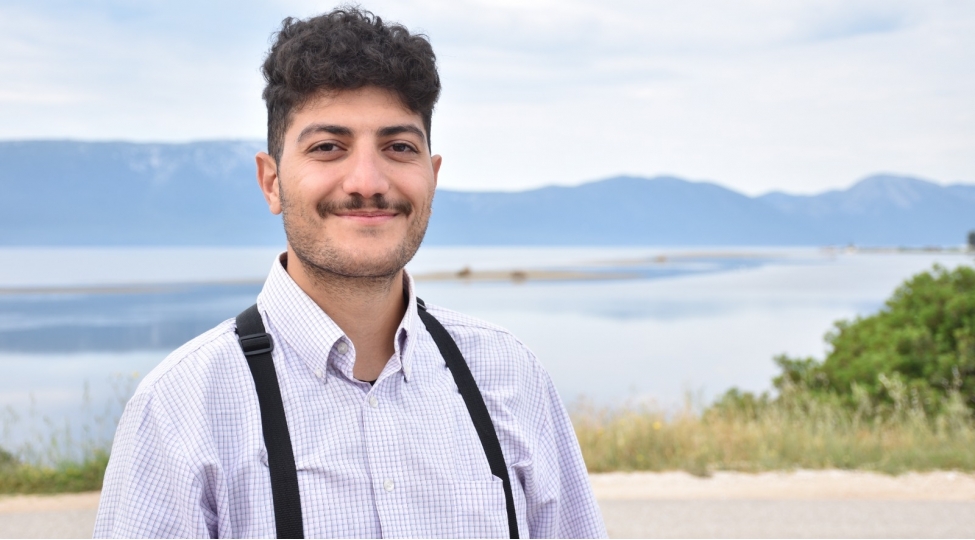Zulfu Farajli, an expert on environmental economics and protection: “Active participation of citizens and non-governmental organizations in environmental monitoring and control work should be ensured” proper use of the region’s potential is one of the important factors in economic reintegration. We present the opinions and suggestions of experts on the topic.
Our interviewee is Zulfu Farajli, an expert on environmental economics and protection.
– Environmental protection and compliance with ecotourism standards in liberated areas. , making full and proper use of natural resources and ecotourism potential, preventing harmful anthropogenic effects are important issues. We would like to know your thoughts on this matter.
– Of course, one of the main principles of ecotourism is to respect the local nature and not to change it. Simply creating noise pollution (making loud noise in nature) is unacceptable. For this purpose, it is very important to raise awareness. Various promotional materials should be developed to teach people the principles of ecotourism and encourage them to protect nature. In addition, the infrastructure in the regions where ecotourism activities are carried out should be prepared in accordance with these principles. For example, in many of our regions, people pollute the environment by saying that there are not enough trash cans. To solve this problem, local executive authorities and ecotourism organizations should work together and create the necessary conditions for the comfort of tourists and the protection of nature. Only in this way, sustainable tourism can be developed according to the principles of ecotourism.
– Protection of the environment, including water bodies and their bioresources, as well as other natural resources in our liberated territories is also important in terms of compliance with the principles of “green growth” in our country. In this context, how would you evaluate the measures implemented in our country, including the liberated areas?
– Unfortunately, although almost all ecologically based decisions in our country are satisfactory on paper, problems arise in implementation. The reason for this is the lack of public control mechanism along with the lack of education. For example, one can see images on social media about people who hunt and fish illegally in the liberated territories. Since the anthropogenic impacts were relatively reduced during the occupation period, nature gained opportunities for self-recovery. Both during the reconstruction works and during the return of citizens to Karabakh, the process should be carried out under control, and the requirements of environmental legislation should be followed. For this, several main measures should be taken: 1. Awareness: Promotional activities should be carried out to explain the importance of environmental issues to people, to encourage them to follow the rules of environmental behavior. For this purpose, mass media, social media, schools and other educational institutions should play an active role. 2. Public Control: Public control mechanisms should be created to monitor the implementation of environmental legislation. This requires the active participation of both local communities and civil society. 3. Enforcement of Laws: Environmental legislation should be strictly enforced, and serious penalties should be imposed for violations. This is important to prevent situations such as illegal hunting and fishing. 4. Environmental Monitoring: Continuous monitoring of activities affecting nature should be carried out, and the number and quality of specialists working in this field should be increased. 5. Local Executive Authorities and NGOs: Cooperation with local executive authorities and non-governmental organizations should be carried out, environmental projects should be implemented with their support.
– Taking advantage of the potential of ecotourism by following the principles of “green growth” in the liberated areas and thereby contributing to the effective reintegration of those areas is also profitable from an economic point of view. It is also reported that the touristic potential of that region is high. In this regard, what steps should be taken to develop ecotourism in those areas? As we know, the Great Return to liberated areas has begun, and environmental and ecotourism education among resettled populations, ecotourism enthusiasts, hobby fishermen and other groups is the need of the hour. What actions are needed in this direction? What should be the awareness measures? What fines can be imposed?
– It is true that, like many territories of our country, the territories freed from occupation have a high potential for ecotourism. However, the safety of the area should be guaranteed for the comfortable travel of tourists, and I would suggest the restoration or creation of Specially Protected Natural Areas in the area. For example, since the area is not well studied ornithologically, the potential for the development of bird watching tourism, which is one of the types of ecotourism, is high. Similarly, mountaineering/hiking tourism, geological tourism, etc. opportunities are also wide. Unfortunately, as I mentioned, cases of inefficient use of bioresources have been recorded in the area. First of all, the legislation should be amended, fines related to illegal hunting should be revised. For example, the decision of the Cabinet of Ministers No. 176 (On the types, rates, rules of application of payments for the use of wildlife and fines for illegal hunting) is based on the first edition of the Red Book (1989). However, 2 additional editions (2013, 2023) were published on it. Although the Ministry of Ecology and Natural Resources says that this issue is being considered and an appeal has been sent to the relevant institution, the current NK decision remains unchanged (currently more than 70 red book species are not reflected in the decision). At the same time, education should be conducted among hunters (for example, many do not know about the new edition of the CC), and the control mechanism should be strengthened.
– Measures related to the protection of bioresources and living things in water basins are also important in the liberated areas. What measures can be taken to prevent illegal hunting and poaching?
– Strengthening the Legal Framework: Stricter enforcement of existing laws and increasing penalties. Strict penalties should be imposed against illegal hunting and poaching. For example, the damage caused to the nature due to the hunting of the wolf, which is one of the very useful predators for the ecosystem, is considered to be only 11 AZN! Even since the NK decision has not been amended, the damage caused by one gray crane is less than the damage caused by some insects! Similarly, it is recommended to improve existing legislation and adopt new laws when necessary. 2) Control and monitoring: Capacity to strengthen environmental control should be increased. Control groups established by local environmental departments should regularly patrol the areas. 3) Awareness campaigns: Awareness campaigns explaining the damage caused by illegal hunting and poaching to nature and society should be organized. Environmental education programs should be implemented in schools and other educational institutions, environmental awareness should be increased among future generations. 4) Active participation of citizens and non-governmental organizations in environmental monitoring and control work should be ensured. In order for the population to be interested in the issue, alternative sources of income should be provided for the local population, and ecotourism, agriculture and other sustainable economic activities should be supported.
– What social media projects can be implemented in terms of education, promotion and information for the main audience and target groups in this regard? How should propaganda be built using new media?
– In order to increase awareness and education, it is necessary to cooperate with well-known influencers and bloggers who pay attention to environmental issues, and convey this topic to their wide audience. It would be good to have them post about environmental legislation, poaching and conservation. For example, there are several examples of this on the TRT Belgesel channel of our brother country Turkey, and it would be good to shoot ecological documentaries with local nature lovers in this direction in our country in the future. Similarly, making educational animated films for children and youth and posting them on platforms like YouTube, Instagram and Facebook will also be beneficial. Taking advantage of innovative technologies, virtual excursions can be organized to introduce the nature of Karabakh and the living world there. Thus, when people visit the sites online through these tours, they will be informed about nature conservation.
The article was prepared within the framework of the “Ecotourism standards in liberated areas” project implemented by the Globalized World Integration Public Union with the financial support of the State Support Agency for Non-Governmental Organizations of the Republic of Azerbaijan. The position of the author or the interviewee and the position of the State Support Agency for Non-Governmental Organizations may not be consistent.


